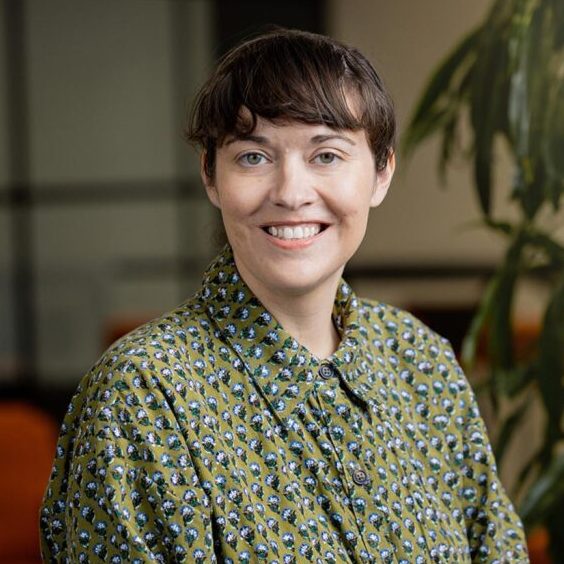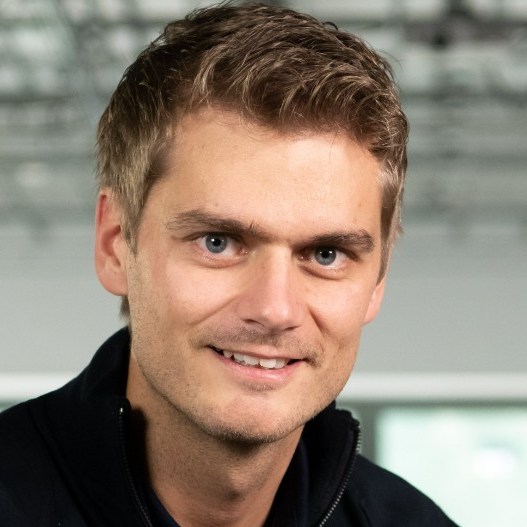Named as a pillar of the government’s industrial strategy, quantum computing is one of the few areas outpacing artificial intelligence. With plans to invest £2.5 billion in the emerging technology, Professor Sheila Rowan, chair of the Quantum Skills Taskforce, said “we are at a pivot point for the sector”.
While only 8,000 quantum-skilled professionals are employed nationwide, the results so far are promising. The average productivity of the UK quantum sector is £128,020 per worker, more than twice the national average of £61,900. Oxford Economics says this could increase to £706 million by 2034, and up to £3.8 billion by 2045, lifting UK productivity by the equivalent of £7,500 per household.
The breakthrough tech uses qubits, allowing quantum computers to explore numerous possibilities simultaneously, rather than sequentially, making them exponentially more powerful.

“Quantum computing is at the stage AI was five years ago, early but accelerating fast,” Liz Durst, vice-president of quantum error correction at Riverlane, a specialist firm, said. “The UK has an opportunity to lead, but only if we grow the talent pool. This is a field where you can build a career that will shape the future of science, technology, and industry.”
With 76 quantum firms operating nationally — the largest number in Europe — the UK is a global hub. One of the key players is Universal Quantum, founded by Professor Sebastian Weidt and which includes Rosemary Leith, wife of the world wide web inventor Sir Tim Berners-Lee, as its senior strategic adviser.
“The UK has built a remarkably vibrant ecosystem,” Weidt said. “We’re not just talking about a few university spin-outs. We’re seeing a genuine commercial cluster with companies spanning hardware, software, applications and services across the quantum stack. The quantum sector might not be a large employer yet, but it’s a high-value one.”
• What is quantum computing? Our science editor tries to explain
Traditionally, the sector has employed physicists, but as the technology develops from the innovative but error-prone “noisy intermediate-scale quantum” computers to more reliable and powerful next-generation machines, the type of workers needed is changing.

Globally, the sector is projected to create about 250,000 new jobs worldwide by 2030, rising to an estimated 840,000 by 2035. In the UK, the most optimistic outlook suggests growth from 5,000 annual new jobs currently to as many as 148,100 by 2055.
Roles most in demand include software engineers to link quantum machines with conventional computers, hardware engineers developing control systems, application specialists translating capabilities into industry use cases, as well as manufacturing experts scaling production.
“Scaling quantum computers is primarily an engineering challenge rather than a physics one. The field needs people who can work across disciplines,” Weidt said. “Some of the most valuable progress comes from those who combine quantum knowledge with a deep understanding of industry challenges.”
With average salaries ranging from £80,000 to £120,000 for senior staff, the sector is attracting the best, from graduates to career-changers. Staff with experience in pharmaceuticals, finance or manufacturing are particularly valued for identifying quantum applications that pure physicists might miss.
Durst believes quantum computing will soon be seen as a prime “purpose career”. She added: “It is a field where persistence matters as much as brilliance, and where diverse perspectives will be essential to making the technology useful and trusted. If you are curious and willing to learn, there is a place for you.”
How to break into quantum computing
• Be wary of the “hype cycle”: Many companies oversell what current quantum computers can achieve. Look for organisations focused on long-term, scalable solutions rather than those chasing short-term goals.
• Build solid foundations in maths, physics and computer science, as these are the common language of quantum technologies. Learn practical programming skills in languages like Python, C++ or Rust.
• Get hands-on experience: Software toolkits and simulators, including Riverlane’s Deltakit, allow you to experiment with quantum computing.
• Focus on your key area: Whether this is algorithms, hardware, error correction or system integration, and show depth in that lane.
• Join the community: Industry conferences, local meet-ups and hackathons are great places to start, and internships can open doors.
• There are a number of entry points, including graduate schemes, training workshops and programmes to encourage more female applicants into the sector
• Remember that not every role requires deep technical training: Disciplines like legal, marketing and operations will all be vital for the industry to succeed.
• Stay curious and open to continuous learning: The sector is developing at speed so keep up to date with ongoing developments.
Possibly the coolest job you can have
Professor Winfried Hensinger is director of the University of Sussex Centre for Quantum Technologies, as well as chief scientist and chairman of Universal Quantum. The 53-year-old was inspired by Star Trek and studied quantum theory for his PhD.
“I feel incredibly privileged with my job. I get to participate in the most exciting research you could imagine,” Hensinger said.
“Britain is one of the world leaders in building practical quantum machines. If you like to change the world in a really profound way, if you like to understand the very fabric of reality, quantum computing and quantum technologies should be something you should be looking into.
“There are numerous skills that we need in the sector, from physics to engineering, from programming all the way to quantum algorithm development. Equally, we need apprentices to help us build vacuum systems or help develop the right electronics.
“It’s possibly the coolest job you can have.”
Six from the best
Andria Vidler was appointed to reinvigorate the National Lottery brand
As chief executive of the National Lottery operator Allwyn, Andria Vidler was appointed to reinvigorate the brand and deliver more cash for good causes. As a former boss of the marketing specialist Tag and Centaur Media, Vidler is also the president of the Advertising Association. Here she explains how to hit your career jackpot.
1 Be ready to flex. The transformation projects I have led have one thing in common: they are always more challenging and more interesting than first thought. Ultimately, they are more rewarding.
2 Demand total belief in your goal. Without personal or collective determination that your goal is the right one and will deliver the intended and right results, overcoming challenges can be impossible.
3 Seek resilience in your leadership team. Regardless of the number of knocks they face, resilience means finding another route to the collective goal.
4 Have confidence in your own voice. Root what you say in data and clear evidence. Learn to argue a clear case and keep calm and objective when you are passionate about a point.
5 Always keep your ears open, everywhere. You can learn something new at any moment. Whether at a conference or in the staff canteen, it’s important to hear how others interpret a challenge.
6 Never underestimate the ripple effect. Tiny decisions you make today can change a business for generations to come. More than 20 years ago the National Lottery invested £1 million in the film Bend it like Beckham, which inspired a generation of girls who have gone on to win the Uefa Women’s Championship. Twice.
Working week
The face of ageism
Fifteen per cent of staff aged over 45 would consider getting plastic surgery to look younger if it helped them get a job or promotion, new research claims. The Age Without Limits campaign found 20 per cent would consider Botox or fillers while 41 per cent would dye their hair to look younger. One in six older workers has faced inappropriate comments about their age from fellow employees. Campaign chief Dr Carole Easton said it was “dispiriting but understandable”.
AI piles pressure on staff
The mounting pressure to upskill in AI is fuelling insecurity among professionals, with 47 per cent saying mastering the new tech “feels like another job”. The LinkedIn research found 32 per cent of UK staff admit they feel embarrassed by how little they understand it, and 36 per cent feel nervous talking about AI at work for fear of sounding uninformed. Charlotte Davies, UK career expert at LinkedIn, said: “Balancing day-to-day responsibilities with the need to quickly build AI skills isn’t easy — but in this pressure lies potential.”
A break from the grind
Interest in workplace sabbaticals is on the rise, with 38 per cent of staff considering the career breaks. However, research from Aegon reveals only 17 per cent of UK workers have taken one. Gen X are most likely to be contemplating a sabbatical, with four times as many employees investigating it than those who had already taken one. Aegon’s Dr Tom Mathar said: “In our longer lives, we can reimagine productivity. It doesn’t have to be a constant grind. There could be seasons of intensity and rest.”
Where the growth is
Manchester, Leeds and Oxford have been named as top powerhouses for business growth in the UK. A NatWest study found Manchester top thanks to its thriving creative and digital sectors while Oxford stood out for its research-driven businesses, many of which began as university spin-outs before scaling into significant mid-market enterprises. Leeds saw growth in health technology and the financial services sector. Andy Gray, managing director of commercial mid-market at NatWest, said: “The UK’s economic story is no longer written only in its biggest cities.”
Appointment of the week
The British Olympic Association is seeking to appoint a new chief executive. This is a rare opportunity to lead Team GB and the British Olympic Association at akey moment in British sport.
The new boss will champion Olympic values and play a central role in supporting the BOA’s athletes and membership, forging powerful partnerships and driving commercial success.
The successful candidate will be entrusted with building on a proud legacy, leading the organisation with empathy, humility and a strong sense of purpose.
Together with chair Dame Katherine Grainger and a dedicated team, the new association chief will ensure Team GB continues to be a source of national pride and make a positive impact across society.
Applicants should be authentic, ambitious leaders with exceptional vision, strategic acumen and a proven ability to build relationships at the highest level. You will understand the privilege and responsibility of public service and possess the resilience to navigate the ever-changing landscape of international sport.
Apply by October 15 at appointments.thetimes.com

